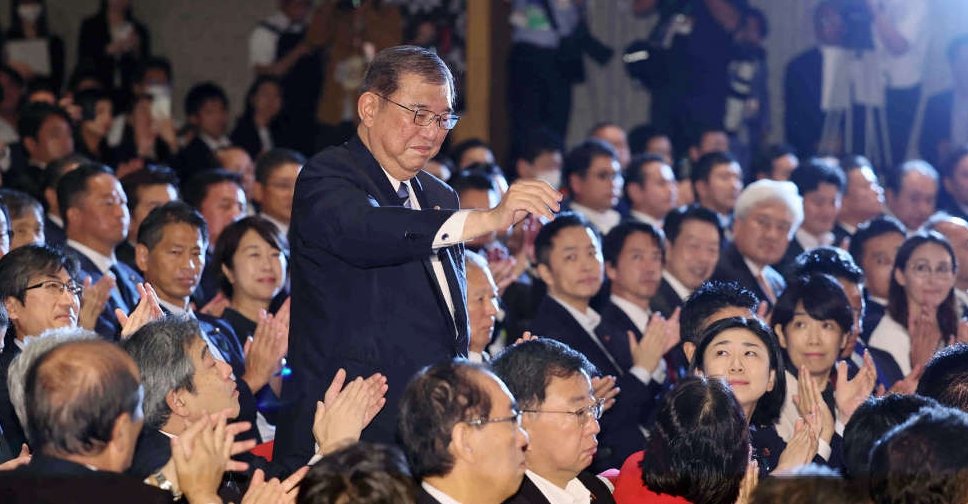In a landmark parliamentary election, Japanese voters made it clear that they are a democratic nation, delivering a resounding message to the ruling coalition led by Japan’s Liberal Democratic Party (LDP). The LDP, alongside its coalition partner Komeito, fell short of the required 233 seats to secure a parliamentary majority, winning only 215 seats. This outcome, the LDP’s most significant electoral setback in over a decade, signals a strong desire among the Japanese populace for accountability and reform in their political leadership.
A Shift in Political Power
The election results highlight a pronounced shift in Japanese political sentiment. The ruling LDP, led by Prime Minister Shigeru Ishiba, was criticized for its failure to adequately address issues impacting daily life, including inflation, allegations of corruption, and public dissatisfaction with economic stagnation. Japanese voters made it clear that they are a democratic nation by choosing a new path, signaling dissatisfaction with entrenched political structures and an eagerness for transparency in governance.
Prime Minister Ishiba, who took office only days before the election, acknowledged the outcome as a “severe judgment” from the public. In a televised statement, he expressed humility, stating, “The Japanese people expressed their strong desire for the LDP to do some reflection and become a party that acts in line with the people’s will.” This election outcome not only underscores a demand for introspection but also casts doubt on Ishiba’s political future, making him vulnerable to internal and public pressures to step down.
A Call for Reform
Japan’s voters made it clear that they are a democratic nation by sending a message that entrenched corruption and scandal-laden politics are no longer acceptable. The LDP, which has held power almost continuously since its founding in 1955, faced a series of publicized scandals in recent years. Accusations of political fundraising corruption and ties with the controversial Unification Church have eroded public trust, leading to record-low approval ratings. At one point, the party’s approval dropped below 20%, a historic low for the LDP. The steady stream of negative publicity likely fueled voter discontent and contributed significantly to the electoral outcome.
The Constitutional Democratic Party (CDP), Japan’s main opposition, gained momentum in this election by winning 148 seats. However, despite this increase, opposition parties remain fragmented and struggle to offer a compelling alternative to the ruling coalition. CDP leader Yoshihiko Noda vowed to cooperate with other parties in a bid to strengthen opposition forces and challenge the LDP-led coalition.
Economic Concerns Drive Voter Dissatisfaction
Japanese voters’ call for change was also fueled by economic grievances. Rising costs in basic necessities such as food, utilities, and healthcare have squeezed household budgets, with wages remaining stagnant for three decades. This economic strain, coupled with recent price hikes, has intensified public frustration. In interviews with Japanese media, citizens frequently cited the “lost 30 years” of stagnant wage growth as a key reason behind their vote for change.
The LDP’s handling of these economic issues has been a primary driver of dissatisfaction. Senior citizens, a significant voter demographic, expressed concerns over the cost of living. Pensioners like Chie Shimizu reported that they must now work part-time jobs to make ends meet, underscoring the economic hardship felt by many. This financial burden has weakened public confidence in the LDP’s capacity to support the welfare of its citizens, resulting in a significant loss of seats in the lower house.
Political Implications of the Election Outcome
The election results place Prime Minister Ishiba in a precarious position. He assumed office after his predecessor, Fumio Kishida, unexpectedly resigned in August. With the LDP’s defeat in the lower house, Ishiba’s tenure is now at risk. Many analysts suggest that the Prime Minister’s recent appointment was poorly timed, as it came amid a storm of scandals and declining public trust. The election result may force the LDP to reassess its leadership strategy and the direction of its policies, especially if Ishiba is compelled to step down as a consequence of this electoral setback.
The Japanese voters made it clear that they are a democratic nation by emphasizing that political leaders must be accountable to the people. This democratic mandate signals the need for structural reforms within Japan’s political landscape, not only within the ruling coalition but also among opposition parties. The LDP must address these demands if it is to rebuild public confidence.
Japan’s Future Amid Changing Political Dynamics
The results have brought renewed focus to Japan’s democratic foundations and the values that underpin its governance. With voter turnout influenced by economic strain and political distrust, Japanese voters made it clear that they are a democratic nation capable of holding its leaders accountable. As Japan moves forward, political leaders across the spectrum are expected to adopt policies that resonate with the people’s demands for transparency, economic stability, and social equity.
This election serves as a reminder that Japan’s democratic processes are alive and robust. Japanese voters’ decision has set the stage for a new era in Japanese politics, one defined by accountability and responsiveness to the people’s will.
Stay connected to know more on arcnews.online for global news like Japanese Voters Made It Clear That They Are a Democratic Nation. For videos updates visit our YouTube. Do subscribe to Arcnews to get latest updates directly in your mail box.
Have A Great Day.


